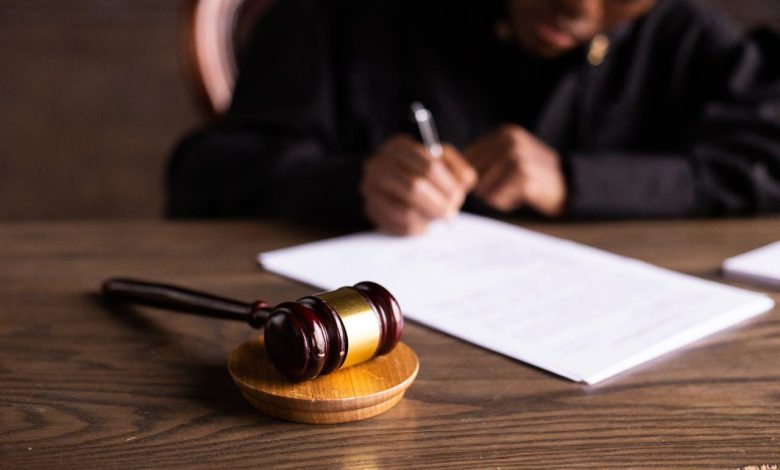What Expert Witnesses Are Used For

Expert witnesses play a pivotal role in legal proceedings, offering specialized knowledge and insights to assist the court in understanding complex matters beyond the scope of typical juries or judges. Their knowledge is diverse and includes forensic science, finance, medicine, and engineering. Expert witnesses assist in the proper administration of justice by revealing truths hidden within minute details by thorough study and testimony. This exploration will delve into the multifaceted roles of expert witnesses, shedding light on their crucial contributions to the legal landscape.
Clarifying Complex Technical Concepts and Evidence
Expert witnesses excel at simplifying intricate technical concepts and explaining them to the court in a way that is understandable. Juries and judges in trials involving specialist professions like engineering or medicine may lack the knowledge necessary to understand intricate scientific concepts or evidence. In this situation, expert witnesses intervene by using their extensive training and expertise to clarify intricate nuances so that the court can make informed decisions.
These witnesses carefully examine the evidence, analyzing facts and describing their importance to the case. In a medical malpractice lawsuit, for instance, an expert witness can examine intricate medical records and diagnostic tests to determine whether the standard of care was breached.
Assessing Credibility and Reliability of Evidence
In many legal proceedings, the admissibility of evidence hinges on its credibility and reliability. Expert witnesses are essential in assessing the reliability of the evidence put out by each side, ensuring that the courts make conclusions based exclusively on reliable facts. These professionals examine the techniques employed to collect the evidence, determining if they comply with industry standards and best practices through in-depth analysis and investigation. Expert witnesses often point out any biases or inconsistencies in the evidence, emphasizing any elements that might cast doubt on its veracity.
Providing Expert Opinions and Testimony
One of the primary functions of expert witnesses is to offer their professional opinions and testimony based on their specialized knowledge and experience. In court processes, these opinions are very influential and serve as a guide for juries and judges as they deliberate. Expert witnesses use their knowledge to evaluate evidence, make judgments, and provide insights that laymen may not be able to. Witnesses must follow strict ethical rules when offering expert views to preserve the objectivity and integrity of their evidence. This entails revealing any possible conflicts of interest and offering frank justifications for their methods and conclusions.
Assisting in Case Preparation and Strategy
Beyond their role in courtroom proceedings, expert witnesses also play a crucial role in case preparation and strategy. During the pre-trial stage, attorneys often depend on these specialists to provide insights and analysis, which helps in the development of successful legal strategies. Expert witnesses carefully examine the case documents, noting any flaws or areas of concern. These professionals work closely with legal teams, providing advice on the choice of evidence, the construction of arguments, and the recognition of possible obstacles. Expert witnesses provide their specific expertise to the creation of strong litigation strategies that are intended to secure successful results for their clients.
Educating and Informing the Court
Expert witnesses serve as educators, enlightening the court on matters that lie outside the realm of common knowledge. These specialists bridge the gap between technical understanding and legal comprehension by imparting vital insights and information via clear and simple communication. Expert witnesses are essential in guaranteeing that the court has access to pertinent and reliable information, whether they clarify scientific concepts, evaluate intricate data, or describe business processes.
Expert witnesses enable juries and judges to reach well-informed verdicts based on solid evidence and logic by promoting comprehension and clarity. Their testimony and analysis add to the corpus of legal precedent and knowledge, fulfilling their educational role beyond the courtroom.
Upholding Standards of Professionalism and Integrity
Expert witnesses are held to high standards of professionalism and integrity, both in their conduct within the courtroom and throughout their involvement in legal proceedings. These specialists’ adherence to ethical standards set by their respective areas and professional associations ensures transparency, objectivity, and impartiality in their testimony and analysis.
Expert witness rules and ethics encompass a range of principles, including honesty, integrity, independence, and confidentiality. Witnesses must uphold a commitment to honesty and truth by abstaining from providing skewed viewpoints or false facts. They must also declare any conflicts of interest that would impair their neutrality so that the court can properly evaluate the reliability of their evidence.
Conclusion
In conclusion, expert witnesses play a vital role in legal proceedings, offering specialized knowledge and insights that inform judicial decisions and uphold the integrity of the legal system. These experts support equitable and just results by offering expert opinions and testimony and demystifying complex technical subjects. By adhering to ethical standards and upholding principles of professionalism and integrity, expert witnesses ensure that the pursuit of truth remains paramount in the administration of justice.
